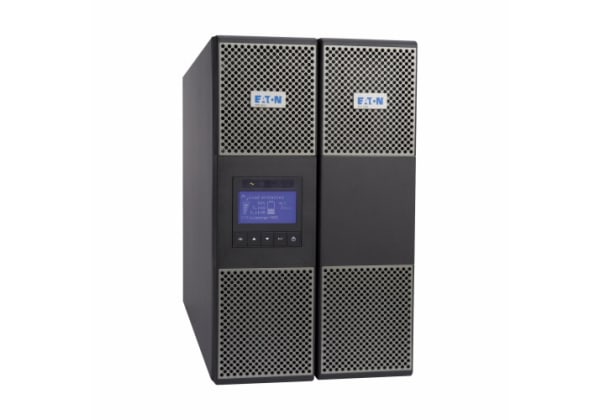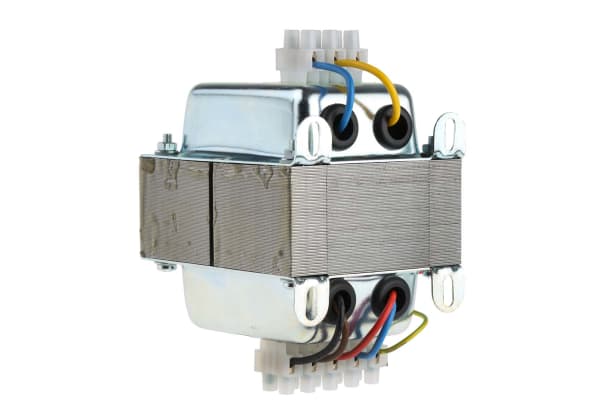- Published 21 Nov 2025
- Last Modified 21 Nov 2025
- 8 min
The Problem: The High Cost of Power Interruption
Protect your critical operations from costly power outages. Learn how uninterruptible power supplies (UPS) and battery backup solutions ensure essential power continuity.

Are your computer systems protected from the dangers of changes in mains power? Our computers’ interconnectivity and the required data security for that get most of the attention these days, but all that wouldn’t be possible without a steady, reliable flow of electricity. Power continuity is a serious thing to consider for workplace computers, industrial control systems, and the servers managing data for critical services and infrastructure. Read on to learn about the importance of battery backup solutions.
While malicious data risks are no joke, data servers and personal computers also face risks from changes to their power continuity, such as blackouts (complete power losses), brownouts (partial voltage reductions, which are more common), voltage surges and spikes, and frequency variation. These can cause:
- Component damage: A computer’s power supply unit (PSU) manages power distribution to the hard drive, motherboard, graphics card, and processors, so if a surge damages it, the rest will suffer. Power losses can also be damaging to the delicate components of computers. Though PSUs are built with surge protection in mind, large surges can still get through and cause irreparable damage, particularly to the motherboard. These damages lead to costly replacements
- Data losses: Power fluctuations can alter the data stored on a hard disk, and the largest surges can wipe a disk completely. Hard drives have surge protection built in, but not against the worst surges that can happen. If multiple hard drives are damaged in a server bank or data centre (especially in critical sectors like medicine), it means vital business data is lost and crucial services can’t get people what they need
- Loss of unsaved work: Now, for the one that might immediately come to mind: if the power suddenly cuts out, you can lose hours or days of progress (depending on when you last saved). Although less common nowadays, as many applications offer auto-save functionality, this isn’t just frustrating; it could also mean the business incurs wasted labour and lost ideas, designs, and records
- Failed data transfers: If a power loss happens while sending an email or a file, it can become corrupted and unreadable on both ends of the transfer, thus disrupting business communications
All this demonstrates the importance of ensuring power continuity for the computers that businesses and the public rely on.
The Solution: Reliable Power Backup Systems
An uninterruptible power supply (UPS) protects against these concerns. A UPS is a battery device placed between a computer and its power supply. It monitors the quantity and quality of the incoming electricity and engages its batteries in the event the supply drops, degrades, or spikes. This makes the computer (or other connected devices) draw power from those batteries instead of mains power. That only lasts temporarily, but it should be long enough for critical data to be saved and preserved and to perform a safe shutdown. UPS systems should be configured based on the power draw of the devices to protect, how long they’ll need to remain on, and what kind of electrical protection they need to provide.
How a UPS Works to Protect Your Equipment
UPS systems function differently based on their type, and those are distinguished by how little of an interruption in the power supply they achieve.
Here are the main UPS types, though note that offline / online refers to whether the batteries are always supplying the computer with power, not internet connectivity:
- Standby / Offline: These are commonly used for individual workstation computers. When a standby UPS detects a power loss, its inverter starts converting the DC battery power to an AC power supply for the devices. This conversion can take around five milliseconds, so there is a slight interruption that’s usually acceptable for personal computers. Standby UPS systems require minimal ongoing power themselves and can protect against blackouts, brownouts, and voltage surges
- Line-Interactive: This hybrid type uses a power transformer to maintain devices’ proper voltage and protect against spikes and surges. The batteries only activate for power losses and still have a delay of a few milliseconds. These UPS systems require far less power than online ones and are well-suited for brownouts, which can happen when the utility company lowers the voltage for emergencies—far more common than full blackouts. They can be a good choice for workplace devices that need slightly greater, more specialised protection
- Double Conversion / Online: This is a ‘true UPS,’ since it never interrupts power. These UPS systems constantly take in mains AC power, convert it to DC power, store it, and deliver reconverted clean AC power to the devices at the proper voltage and frequency. Since they’re always online, there’s no activation delay at all. These draw a lot more power than other UPS systems but are the best choice for the servers that critical services depend on since they protect against all hazards of power continuity changes
Choosing the Right Battery Backup for Your Needs
So, what UPS type and properties are right for you? Consider the following factors:
- Type of protection: What electrical events do your devices need protection from? A standby UPS can handle blackouts, brownouts, and voltage surges. A line-interactive one can also finely control the voltage to absorb any small dips or rises. An online UPS does all that while also cutting out frequency variation, harmonics, and line noise, and it ensures the power never cuts out
- Power capacity: Assess the power load (energy use over time; watts) of all the devices the UPS will protect. The UPS wattage rating needs to meet or exceed that total wattage—though exclude the wattage of any redundant power supplies the devices themselves have
- Runtime: If the power fails, how much time will you need to save your work and safely shut your devices down? Do you work with large files that take several minutes to save and close? Do your router, modem, etc. have a UPS so that you can finish critical message and file transfers? Determine a minimum runtime for your needs and choose a UPS with batteries that can deliver your power load for at least that duration—preferably a healthy margin longer than that
- Operating costs: UPS systems use power themselves to deliver this power continuity, so consider what ongoing utility costs you’ll incur to operate one. Offline draws relatively low power to keep its batteries charged, online draws the most to stay always-on, while line-interactive strikes a balance between the two
- Battery type: Also think about battery life and safety. Valve-regulated lead acid (VRLA) batteries have a solid five-year life and automatic vents for hazardous gases the batteries may produce. They can be good for use in ventilated, temperature-controlled offices, though lithium-ion (Li-ion) batteries are even safer and longer-lasting—though they can be more expensive. Vented lead acid (VLA) batteries have more chemical hazard potential and need careful, controlled storage and maintenance, so they’re better for data centres
Generally, offline is good for individual workstation computers, line-interactive can protect sensitive computers or server racks that draw less than 5,000 VA (volt-amperes) of power, and online is best for servers that need the most reliability.
Applications in Critical Infrastructure
Given the prevalence of computers throughout everyday life, battery backup solutions are necessary for many critical public services:
- Healthcare: Patient records need protection from corruption or loss, and life support systems must be kept on during a blackout for the time before generators can start up. Sensitive medical equipment also needs protection from power fluctuations. Small UPS systems even exist for life support equipment travelling on stretcher
- Finance: Banks and other financial institutions digitally maintain our money and transactions, so if their servers experience power losses or fluctuations that means disaster for accessing funds
- Utilities: Water, natural gas, and even the electricity itself, all these services rely on servers to function, so they need power continuity to prevent interrupting these everyday necessities
- Transportation: Vital systems managing vehicles such as air traffic control, traffic signals, and trains controls all must have reliable electricity
- Defence: Military systems need the utmost reliability and data security. Interruptions to their electrical supply lines can have disastrous consequences
- Telecommunications: Guaranteeing power continuity for internet, telephone, and cloud storage services ensures that we stay connected in emergencies and that all these other public services can transmit vital data
UPS systems are thus a vital part of guaranteeing delivery of the services we rely on.
Browse RS’s power supply solutions today to guarantee power continuity for your systems.


